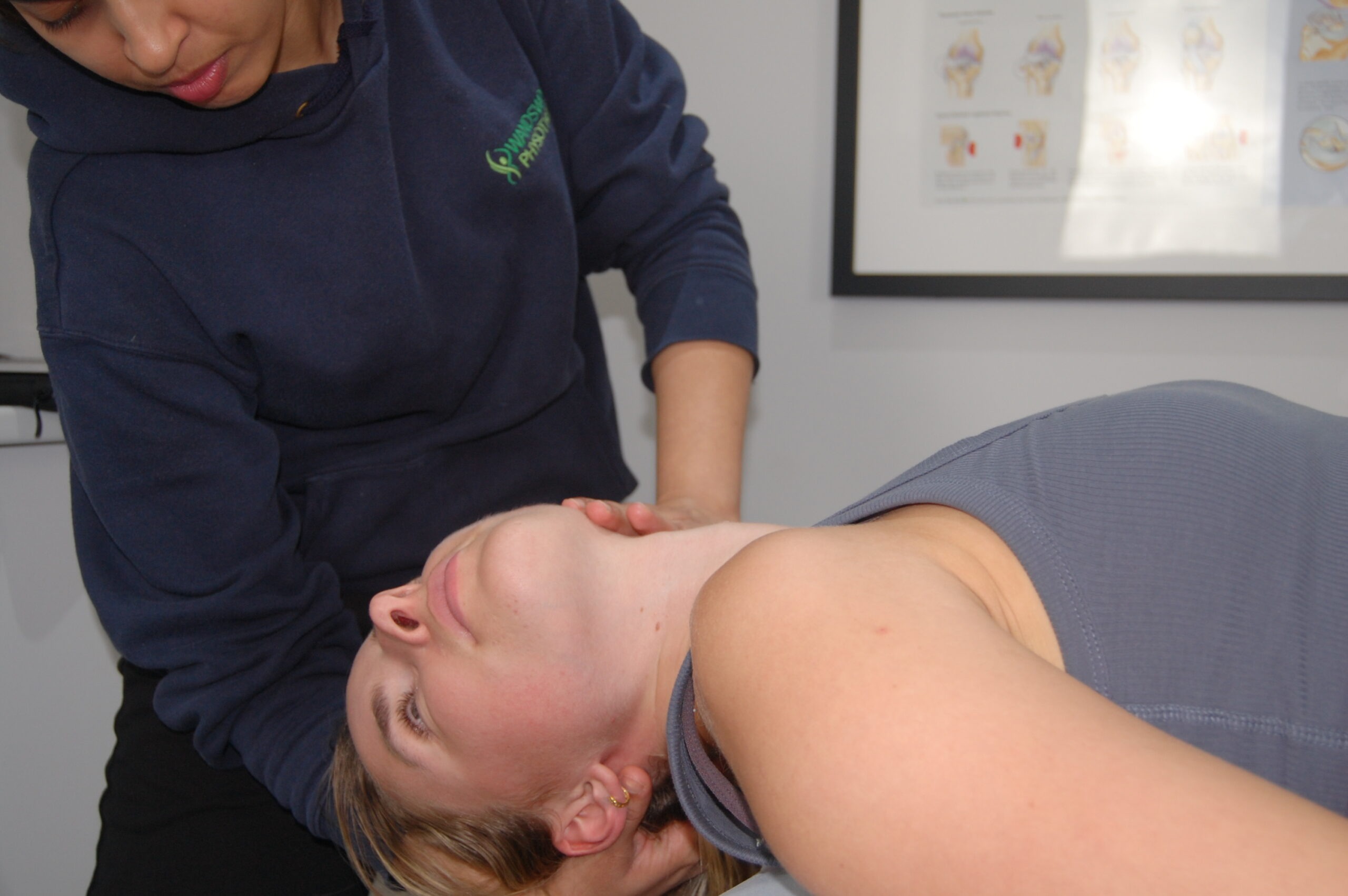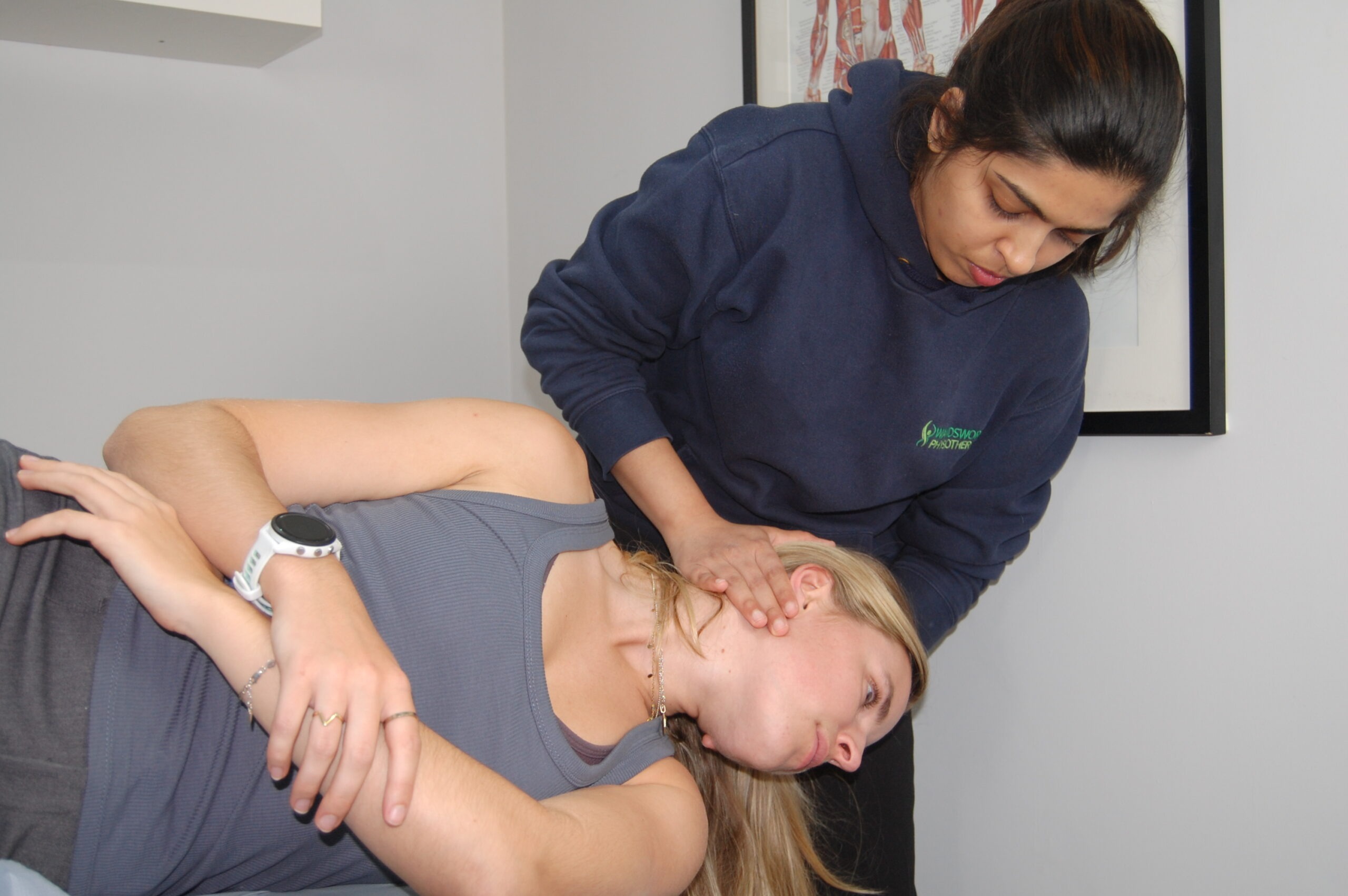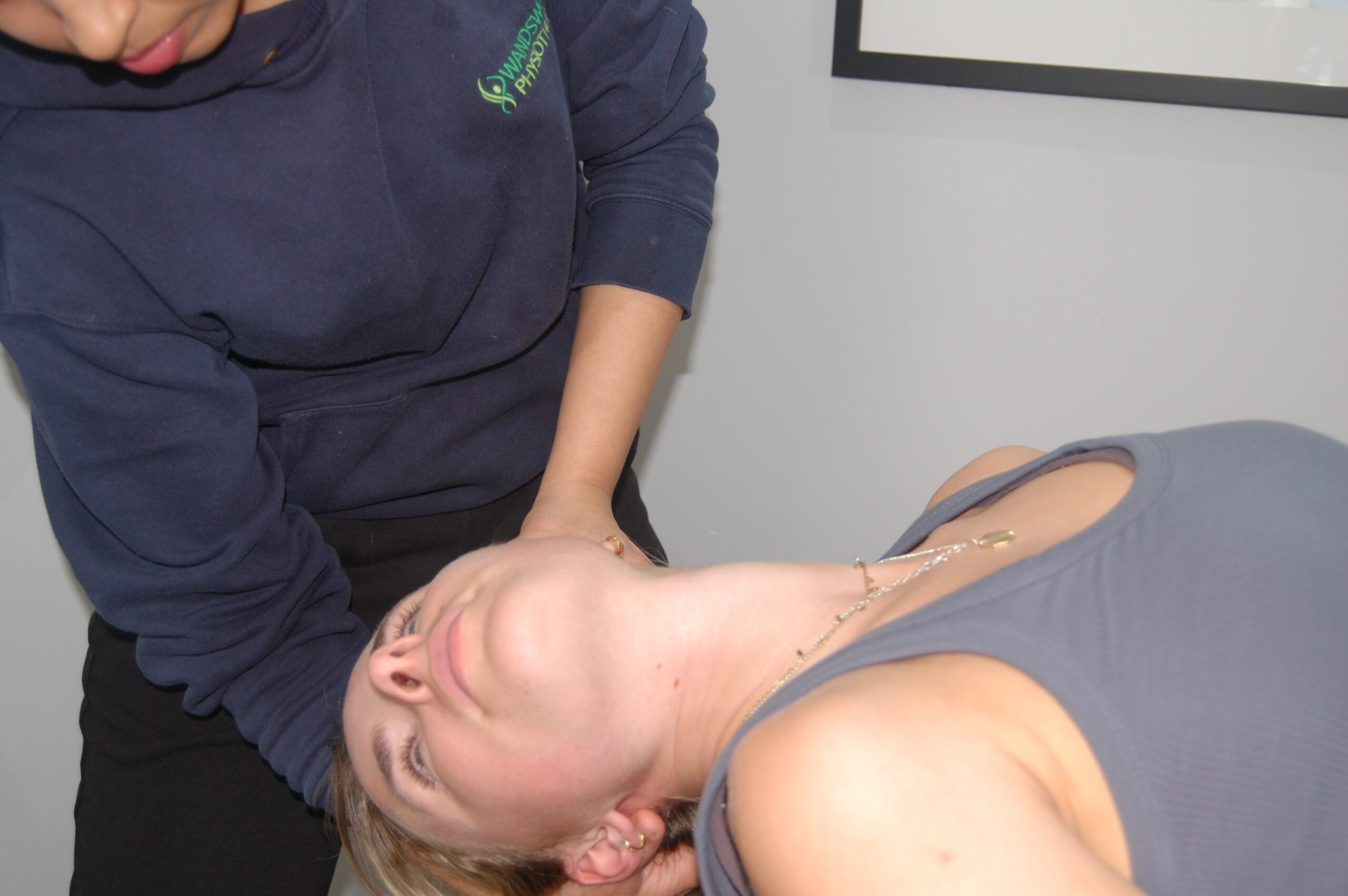
Does this describe you?
At Wandsworth physiotherapy and osteopathy our highly experienced vestibular physiotherapists treat people just like you and help them get back to what they love doing without the fear of further episodes of dizziness or vertigo.
Balance function comes from a combination of the input from our eyes, ears (including hearing as well as the vestibular organs – the otoliths, semi-circular canals and vestibular nerves) and proprioception from the sense of our feet being on the floor and the position of our posture and our joints that are sensed in our brain. Our brain processes all this information to establish where we are in space and our balance. Dizziness can be caused by faults in these systems.
Commonly one or both of the vestibular organs (the semi-circular canals) become dysfunctional or the vestibular nerve becomes inflamed and we can suffer from sudden onset, severe, transient vertigo/dizziness. This can be extremely stressful inducing nausea, vomiting, anxiety, panic attack, dizziness and falls.


There are a number of different conditions that can affect balance and require vestibular physiotherapy. Some are more serious than others. We can help to diagnose these problems for you and where necessary, refer you to your GP or A and E. However we can help to manage the symptoms of these disorders (including persistent postural perceptual dizziness and vestibular neuritis):
BPPV is the most common vestibular disorder. This happens when crystals become dislodged in the semicircular canals in the inner ear. This causes short episodes of dizziness when moving your head from side to side, rolling in bed or when looking up or down.
BPPV can be assessed and diagnosed from your symptoms and by using a Dix-Hallpike manoeuvre or head roll test. BPPV can affect the posterior semicircular canal and is very effectively treated with The Epley manoeuvre or Semont manoeuvre to try to remove and settle the crystals from the inner ear. BPPV can also affect the lateral semicircular canal and a head roll test and BBQ roll or Gufoni manoeuvre is useful. There are home exercises that can be used as well such as the Cawthorne-Cooksey exercises or the Brandt-Daroff exercises.
Another condition that causes dizziness is an infection of the vestibular nerve in the inner ear disrupting your sense of balance. This is called vestibular neuritis. Viral infections of the inner ear are the most common cause of vestibular neuritis and cause anything from mild to severe dizziness, spinning and sometimes nausea and vomiting. Bouts of dizziness are distinctly different from BPPV in that they can last for longer than 24 hours and can be accompanied by nausea and vomiting. Using a head impulse test can be useful in helping to make a diagnosis with a catch-up saccades often occurring on the positive side.
Treatments can include the short term use of medication for a few days whilst the worst of the symptoms pass, mobilisation and massage to the neck area, acupuncture and the guidance through specific vestibular rehabilitation exercises such as the Cawthorne-Cooksey exercises or Feldenkrais exercises.
Labyrinthitis is often used to describe the same condition. However, people with labyrinthitis usually experience hearing loss as well as balance problems and dizziness. This often occurs after a upper respiratory tract infection such as sinusitis.
Ménière’s disease is a condition of the inner ear that causes sudden attacks of vertigo (feeling like the room is spinning), tinnitus (ringing in the ear), a feeling of pressure in the ear and hearing loss and sometimes drop attacks. It can be quite debilitating and is difficult to diagnose and can often be a diagnosis by exclusion. Although there are no easy fixes to this coping and management strategies are readily used.
Vestibular migraine involves bouts of dizziness that are accompanied by headache or migraine symptoms.
More serious causes of sudden onset severe dizziness accompanied by unsteadiness on your feet, nausea, vomiting could be indicative of having a stroke and needs urgent assessment in A and E.
We will endeavour to assess your symptoms of dizziness as well as the range of motion in your shoulder, neck and jaw and put a treatment plan together to restore optimal movement in these area. This may include joint mobilisation and massage, as well as acupuncture.
We can use canal repositioning manoeuvres that are so effective for BPPV. We will also put together and guide you through specific vestibular rehabilitation exercises to help you manage the symptoms of your dizziness:
Vestibular rehabilitation is about adaptation, habituation and substitution incorporating customised physiotherapy exercises.
We can also help those with Persistent Postural Perceptual Dizziness (PPPD), which is a chronic dizziness disorder. Our latest understanding is that this develops through having an initial episode of dizziness, that then radically changes behaviour leading to fear and avoidance of dizzy spells, reinforcing a lack of movement, stress, anxiety and avoidance of everyday life.

Trustindex verifies that the original source of the review is Google. I had back pain (which I initially thought was hip pain). My pain subsided with the exercises prescribed, and was a massive fan of Nuzhat Shaikh because she responded positively to my curiosity about human anatomy. I feel confident that I can manage my exercise load without aggravating my back, because I understand the signals my body is giving me better!Trustindex verifies that the original source of the review is Google. I had a great experience with my physiotherapy sessions. Shreya was knowledgeable, attentive, and tailored the treatment to my specific needs. I noticed real improvement after just a few sessions. Highly recommend for anyoneTrustindex verifies that the original source of the review is Google. I sought help from Wandsworth Physiotherapy (Khushboo in particular) to treat osteoarthritis in my knee. I was pleasantly surprised by how quickly the treatment took to start working. Khushboo customised her treatment and exercises to my capabilities and abilities. All in all a very positive experience. I would highly recommend WP.Trustindex verifies that the original source of the review is Google. Amazing sports massage! Helped with my ITB issues before a half marathon. The staff were lovely and very knowledgeable - would high recommend!Trustindex verifies that the original source of the review is Google. I am currently seeing Prarthi for slipped disc and sciatica related pain. Every session makes a difference and 3 weeks in and my pain and overall mobility is much better. Highly recommend.Trustindex verifies that the original source of the review is Google. Had the best session with Andreas. He’s understood my back pain issues and has suggested a treatment plan that is already paying off after just one session.Trustindex verifies that the original source of the review is Google. Helped fix my lower back pain last year, highly recommend.Trustindex verifies that the original source of the review is Google. I recently had a physio appointment with Shreya. She was very warm, friendly and professional. She managed to diagnose an issue with my shoulder, which I have had for many years. Following the suggested exercises there has already been a noticeable improvement.Google rating score: 4.9 of 5, based on 396 reviewsVerified by TrustindexTrustindex verified badge is the Universal Symbol of Trust. Only the greatest companies can get the verified badge who has a review score above 4.5, based on customer reviews over the past 12 months. Read more
How can we assist?